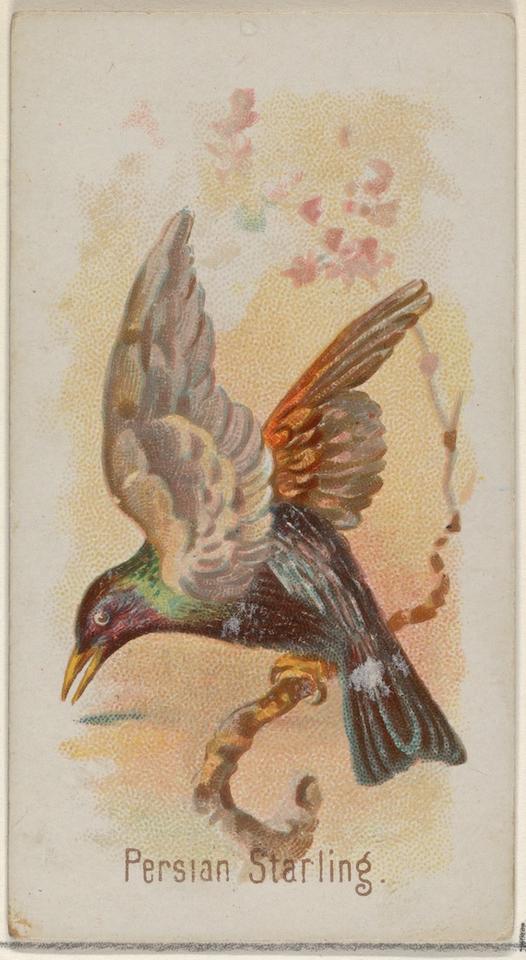Stanza 7 of the first edition of Edward FitzGerald’s translation of the Rubáiyát of Omar Khayyám talks about how little time we have here on earth, and the urgency for us to enjoy life. “Repentance” is a luxury we can’t afford, the poetry affirms:
VII.
Come, fill the Cup, and in the Fire of Spring
The Winter Garment of Repentance fling:
The Bird of Time has but a little way
To fly — and Lo! the Bird is on the Wing.
This quatrain became especially famous and beloved. The perennially best-selling novelist James A. Michener took the title of one of his books from it and quoted it.
In my view, the first two lines resemble the Bodleian manuscript no. 61, which I translated:
Your love has trapped this aged head of mine;
if not, my hand would put this wine-glass down.
My mind repented but you tempted me;
time ripped the clothes that patience wove for me.
پیرانه سرم عشق تو در دام کشید
ورنه ز کجا دست من و جام نبید
آن توبه که عقل داد جانان بشکست
و آن جامه که صبر دوخت ایام درید
—-
Order Juan Cole’s contemporary poetic translation from
or Barnes and Noble.
or for $16 at Amazon Kindle
——-
I don’t know if it was in the Calcutta manuscript that Edward Cowell sent to FitzGerald from India in June 1857, but there is a quatrain attributed to Khayyam that shows up in such collections of his verse that could have suggested the last two lines of this poem:
افسوس که نامهٔ جوانی طی شد
وان تازه بهار زندگانی طی شد
آن مرغ طرب که نام او بود شباب
افسوس ندانم که کی آمد کی شد
I would translate this one this way in blank verse:
How sad — youth’s letter has been crumpled up,
and life’s fresh springtime waned and died away.
That warbling bird, the name of which was youth —
alas, I don’t know when it came or fled.
transliteration:
Afsūs ke nāmah-e javānī ṭayy shod
v-ān tāza bahār-e zendegānī ṭayy shod
ān morḡ-e ṭarab ke nām-e ū būd shabāb
afsūs nadānam ke kay āmad kay shod.
I give the transliteration so you can see the shape of the Persian words even if you don’t know the language. It is related to English and other Indo-European tongues. For instance, here javānī or youth is related to juvenile. Taza or fresh you may recognized from the “taza tea” in some tea shops. It comes to us from Hindi-Urdu, borrowed from Persian.
Edward Heron-Allen thought that the last two lines of 1:7 were drawn from a line of the great Sufi mystic Farid al-Din Attar (d. 1220), in his classic, Parliament of the Birds .
Arberry translates it, “The bird of Heaven’s sphere flutters on its path.”
Arberry (p. 197) also suggests that the first two lines were inspired by no. 447 of the Calcutta manuscript:
هر روز بر آنم که کنم شب توبه
از جام و پیاله لبالب توبه
اکنون که رسید وقت گل ترسم نیست
در موسم گل ز توبه یا رب توبه
A literal translation would be this;
Every day I determine to repent that night
Cup and chalice full to the brim– repentance!
Now that the time of the rose has arrived, I have no fear
In the season of the rose, from repentance, O Lord: repentance!
Transliteration:
Har rūz bar ānam ke konam shab tawba
az jām o piyāla lab-ā-lab tawba
aknun ke resīd vaqt-e gol tarsam nīst
dar mawsam-e gol ze tawba yā rabb tawba
The last verse cleverly has him repent of his repentance.
This quatrain is almost the same as one that appears in the Book of Choice of Attar, given at this site .

“Persian Starling, from the Song Birds of the World series,” Metropolitan Museum. Public domain.
In the first edition of the Encyclopedia of Islam , V. Minorsky explained that the Russian scholar Valentin Zhukhowsky (d. 1918) showed in the late nineteenth century that a high proportion of quatrains attributed to Omar Khayyam in the 1867 edition of Jean-Baptiste Nicolas (d. 1875) were also found in the collected works (divans) of 39 other poets. Some of them showed up in the works of several different authors. He called them the “wandering quatrains.”
The problem is not so much multiple attribution — that is common in medieval manuscripts. The problem is that there is no early stable corpus of poetry attributed to Omar Khayyam. You have a poem here and a poem there said to be his, but then another author will quote a few different and unrelated verses. And then many of these quatrains show up in the Collected Works or Divan of other poets. I have concluded that these are folk poems, written by many different people over time– some by artisans, some by courtiers, some by wandering dervishes, and some by women, and they were attributed to Khayyam as a “frame author.” The analogy is to The Arabian Nights, which were produced by anonymous story-tellers in Cairo, Baghdad and Aleppo over centuries and attributed to Scheherazade.
More in this series:
FitzGerald’s Rubáiyát of Omar Khayyám 1:1
“Awake my little ones and fill the Cup!” FitzGerald’s Rubáiyát of Omar Khayyám 1:2
“Those who Stood before the Tavern” – FitzGerald’s Rubáiyát of Omar Khayyám 1:3
Now the New Year is Reviving old Desires: FitzGerald’s Rubáiyát of Omar Khayyám 1:4
“But still the Vine her ancient Ruby Yields:” Fitzgerald’s Rubáiyát of Omar Khayyám 1:5
“Red Wine!” – the Nightingale cries to the Rose: FitzGerald’s Rubáiyát of Omar Khayyám 1:6

 © 2026 All Rights Reserved
© 2026 All Rights Reserved